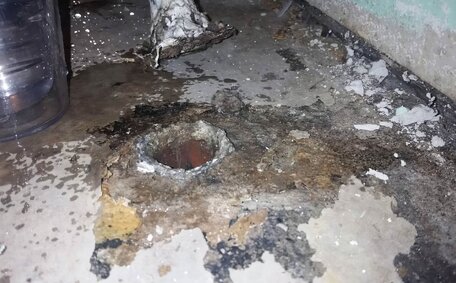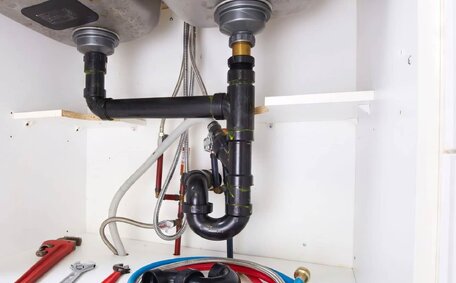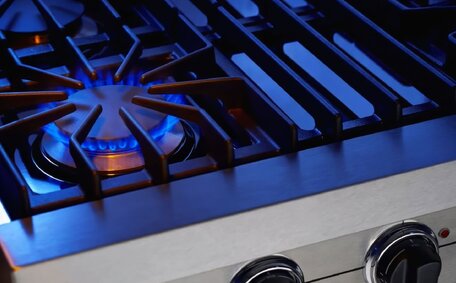Introduction to Tankless Water Heaters
Tankless water heaters are a modern option for providing on-demand hot water in homes. Unlike a traditional storage hot water system, tankless water heaters activate only when hot water is needed, guaranteeing a continuous supply.
This analysis will determine the practicality of tankless hot water systems for homes, addressing whether they meet specific household needs.
We will investigate the benefits and limitations of tankless water heaters, focusing on their efficiency, cost implications, and upkeep compared to traditional systems.
By the end of this analysis, you’ll have a clearer understanding of the benefits and downsides of on-demand hot water systems to help you determine their value for your home.
Benefits of Tankless Water Heaters
Tankless water heaters provide a more efficient hot water supply and deliver several key benefits over traditional storage tank models:
Energy Efficiency
Tankless heaters can be significantly more energy efficient, often exceeding a 50% improvement over traditional systems, while providing a constant hot water supply. They deliver hot water immediately upon demand, preventing the limitation of depleting a pre-heated storage reserve. This eliminates standby heat losses, providing hot water without energy wastage.
Continuous Hot Water
Tankless heaters, which exemplify the pros cons tankless water supply, heat water as it flows through the unit, serving several taps and appliances at once without a decline in temperature.
Space Savings
Their compact wall-mounted designs eliminate the need for a large water tank, reclaiming space previously used by traditional heaters.
Environmental Benefits
Higher efficiency acts as an energy saver, lowering the energy needed to heat, resulting in lower greenhouse gas emissions. Tankless models last longer too, generating less landfill waste over time.
Switching to a tankless system can result in yearly savings of approximately AUD 140-280 for an average household, while supporting sustainable living and cost-efficient hot water for high or fluctuating usage demands.
Efficiency and Energy Savings
One of the standout features of tankless water heaters is their increased energy efficiency despite the higher upfront cost, with the potential for reduced utility bills. By heating water instantly as needed instead of storing already heated water, gas tankless water heater models avoid standby heat losses which waste energy.
Thanks to the absence of a bulky storage tank, a tankless system boasts over 50% higher efficiency in maintaining your hot water than conventional storage tank water heaters.
This efficiency benefit can result in significant energy bill reductions, with tankless water heater models saving up to 25% annually. Actual savings will vary based on water consumption, climate, and the type of tankless heater, be it gas or electric.
The exceptional efficiency of these demand water heaters make them a smart, eco-friendly choice. Tankless models have a smaller carbon footprint from lower energy consumption and can last more than 20 years. Choosing a tankless model promotes eco-friendly living, ensuring a steady supply of hot water with reduced wastage.
Continuous Hot Water Supply
One of the biggest perks of tankless water heaters is the ability to provide a seemingly endless supply of hot water. The term ‘unlimited’ refers to the continuous flow operation of these systems.
As soon as hot water is drawn, cold water enters the tankless unit where it’s rapidly heated on demand. This produces a consistent stream so you’ll never run out hot water for showering, appliances, multiple taps, and more.
However, there is a brief initial delay of about 5-10 seconds for the cold water within the pipes to travel to the tankless heater and warm up. Following this brief pause, a continuous stream of hot water is available.
Potential Drawbacks of Tankless Water Heaters
While tankless models provide advantages like an endless supply of hot water and energy savings, consider the cons tankless technology might entail:
Expect to pay $1000+ for the heater itself, plus several thousand dollars more for professional installation and any required electrical upgrades.
Limited Flow Rates
Tankless heaters, with their efficient heat exchanger, provide a steady flow of hot water although the maximum flow rate might not suffice during peak demand periods. Simultaneous use of multiple taps and showers could cause a drop in water temperature.
Complex Installation
Specialised gas lines or upgraded electrical systems are often needed to support tankless heaters, increasing complexity. Professional installation is crucial to avoid ineffective functioning due to improper setups.
While more efficient overall, gas water heating with tankless systems isn’t the best solution for every home. Carefully weigh the pros cons tankless options present, like upfront expenses, flow rate limitations for your household, and ease of installation, before deciding on an upgrade.
Higher Upfront Costs
A significant disadvantage of tankless water heaters is the substantially higher initial costs for purchase and installation relative to traditional storage tank systems.
Anticipate investing $1000 or more solely on a robust tankless system your home, with costs varying by fuel type, flow rate, and brand. Installation is complex too, often requiring new dedicated gas lines, upgraded electrical circuits, and exhaust vents added specifically for the tankless heater.
Including professional installation, the total cost to switch to a tankless system can range from $3000 to $5000. These high initial costs mean you may wait over 5 years before reaping enough energy savings to recoup expenses. However, with the system right tailored to your needs, it can last over 20 years, providing sustained savings.
Weigh up this major initial investment against the advantages of continuous hot water and potential energy bill reductions before deciding if tankless works for your household’s needs and budget.
Limited Flow Rate Capacity
Tankless units can easily provide a continuous supply of hot water by heating it instantly as it passes through. Each tankless model has a flow rate cap, typically ranging from 19 to 38 litres per minute, which can be restrictive during high-demand periods.
Exceeding this flow rate, for example by running multiple showers and taps simultaneously, can result in decreasing hot water temperatures as the tankless heater struggles to keep up with demand.
Checking your typical peak water flow rate needs against tankless heater specifications is important.
Premium gas tankless heaters can provide flow rates above 38 litres per minute. But upgrade costs quickly add up, so weighing household demand is key before choosing tankless to ensure enough hot water during peak times.
Complex Installation Considerations
Installing a tankless water heater often involves more complexity compared to swapping a conventional storage tank unit. Professional installation is highly recommended to ensure your tankless water heater can function correctly and efficiently.
There are several key factors around tankless installation to consider:
Space Requirements
Tankless heaters are compact but still require adequate clearance for ventilation, gas lines, condensation drains, and accessibility for maintenance.
Venting
Installing stainless steel venting is crucial to discharge exhaust gases and avert harmful carbon monoxide accumulation.
Gas Supply
Upgrading gas lines may be necessary to provide sufficient fuel to support tankless heaters, which have a high BTU output.
Electrical Upgrades
Whole-home and electric tankless water models typically require higher amperages compared to standard units. Electrical system upgrades help avoid tripped breakers.
With professional installation accounting for these requirements, water your tankless heaters can be integrated effectively. This avoids improper setups leading to reduced efficiency or functionality issues.
Comparing Electric vs. Gas Tankless Models
When evaluating electric versus gas tankless water heaters, there are critical differences to consider:
Efficiency
Gas tankless units are generally more energy efficient, with efficiency ratings over 90% compared to under 100% for electric models.
Power and Flow Rate
Gas hot water heaters typically offer higher flow rates, above 7 GPM. Whole home electric tankless often max out below 10 GPM.
Size and Weight
Electric tankless models are notably smaller and lighter since they don’t need fuel lines or vents, making them ideal for compact spaces.
Operating Costs
Electricity is often more expensive long-term. Gas prices tend to remain stable over decades.
Your choice between tankless or traditional, gas or electric units should be based on household demand and total lifetime cost calculations.
Key Factors When Choosing Between Tankless and Conventional Water Heaters
When deciding between a tankless or conventional storage tank water heater, some key considerations include:
Assess your household’s peak hot water usage and flow rate requirements. Tankless systems may be inadequate for extremely high simultaneous demand, such as multiple active baths or showers.
Colder climates can affect the efficiency of electric tankless models, while gas tankless heaters tend to perform better in such conditions. Also check if tankless are allowed in apartments/condos.
Available Space
Tankless water systems are very compact. Conventional heaters require more area and ceiling clearances. Measure space when replacing existing units.
Upfront vs Long Term Costs
Consider these key factors alongside home efficiency upgrades. Get professional advice to determine the most practical and cost-effective system for your household.
Hot Water Usage Patterns
Analysing your household’s unique hot water usage patterns is key when evaluating whether a tankless water heater makes sense.
Homes experiencing peak demand surges, such as during the morning rush, may challenge a tankless heater’s flow rate capability. Simultaneously running multiple showers, dishwashers, and taps can exceed a demand of 57 litres per minute, a rate too high for most tankless units to handle.
Conversely, households with steady or low hot water demands throughout the day are well-suited to tankless systems. The continuous flow and efficiency of heating water on demand saves energy and money over time.
Consider your daily routines, laundry schedules, number of occupants, and what times see the highest hot water demand. Such insights are vital to correctly size a tankless heater or to establish whether a conventional system is more suitable.
Homes consuming more than approximately 170 litres of hot water daily often benefit most from upgrading to a suitably sized tankless unit. Call us to speak with a professional to gauge whether your water usage habits make tankless worthwhile.
Climate and Location
Colder regions need more from a heater, often making gas models a preferable option than electric ones, to warm up water from a lower starting temperature. For a 40°F temperature rise to reach 120°F output, an electric tankless unit in a very cold climate may struggle to maintain its flow rate capacity.
Gas tankless water heaters perform better in colder weather overall in terms of consistent flow rate and hot water delivery. The power of natural gas makes them less prone to performance issues as inlet water temperature drops.
In temperate and hot regions like Bankstown in Sydney, Australia, both electric and gas tankless units work exceptionally well year-round. Mild winters reduce the temperature rise needed for comfortable hot water.
It’s also worth checking body corporate bylaws before installing tankless water heaters in apartments or strata complexes. Some buildings prohibit exterior vents, gas supply upgrades, or may have insufficient electrical capacity - important location factors to investigate beforehand.
Consult with local plumbing experts to find the right tankless water heater that complies with Bankstown’s climate and any building regulations.






